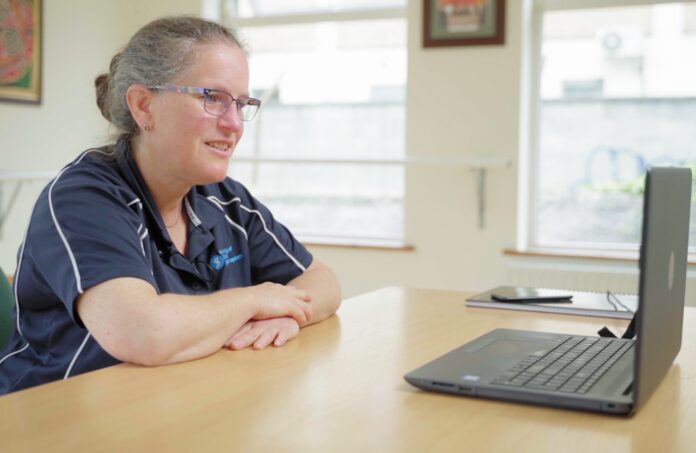
A LIMERICK woman has developed an online exercise programme that could save the health service billions of euro by reducing the risk of people falling.
University of Limerick Professor Susan Coote runs the Active Neuro project, which provides online physiotherapy classes for people with neurological conditions who are at increased risk of falling.
The online sessions have grown in popularity during the Covid pandemic with face to face classes cancelled due to social-distancing guidelines.
“Reducing falls and associated injuries is an extremely positive outcome that has the potential to reduce personal factors such as injury, fear of falling and activity curtailment, and also societal costs such as inpatient and outpatient visits, increased needs for care and increased numbers of days off work,” she explained.
“There were 39 people reporting falls pre-intervention and this reduced significantly to 20 after the intervention, with the number of falls reducing from 276 to 192.
“There was also a significant reduction in visits to emergency departments and inpatient services, reducing from 24 to 16 people and from 122 to 52 days. 66 out of 153 people reduced their usage of healthcare services after our programmes.”
During 2020 and 2021 the online programme received 22 referred participants, the majority with Parkinson’s (40%) and Multiple Sclerosis (35%), and it delivered 48 programmes to 340 participants.
Professor Coote explained that the move to online services was also “very positive as it reduced the barriers of transport, accessibility, time and fatigue” for participants who have mobility issues.
“As these are progressive conditions they would deteriorate without physiotherapy treatment, particularly during the pandemic when general mobility was limited due to restrictions in addition to not being able to go out to physio. 87.6% improved or maintained their fatigue levels, and 86.3% improved or maintained their balance and strength levels,” she added.
According to the Irish Hip Fracture Database (IHFD) 2020 National Report, 74 hip fracture patients had a Covid diagnosis in 2020 and showed a “lower level of compliance” with hip fracture standards and had “significantly increased mean and median length of stay (periods) in hospital”.
“Inpatient mortality increased from 5% in 2019 to 28% for this group in 2020 but, as this is a small cohort of patients, the data should be interpreted with caution and there will be further analysis conducted as more data become available for patients with both hip fractures and Covid-19”.
The report found that in 2020 there was a 10% reduction in the number of hip fracture patients at University Hospital Limerick admitted to an orthopaedic ward or surgical theatre from the emergency department within the standard four hours.
The Limerick hospital performed well in post operative care, with 93% of hip fracture patients mobilised by a physiotherapist on the day or day after surgery in 2020. There was also a reduction in the number of hip fracture patients developing pressure ulcers following admission.










